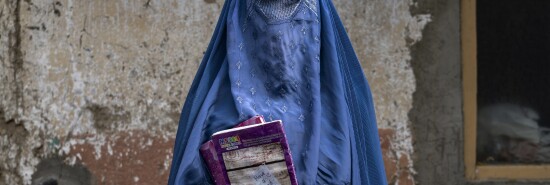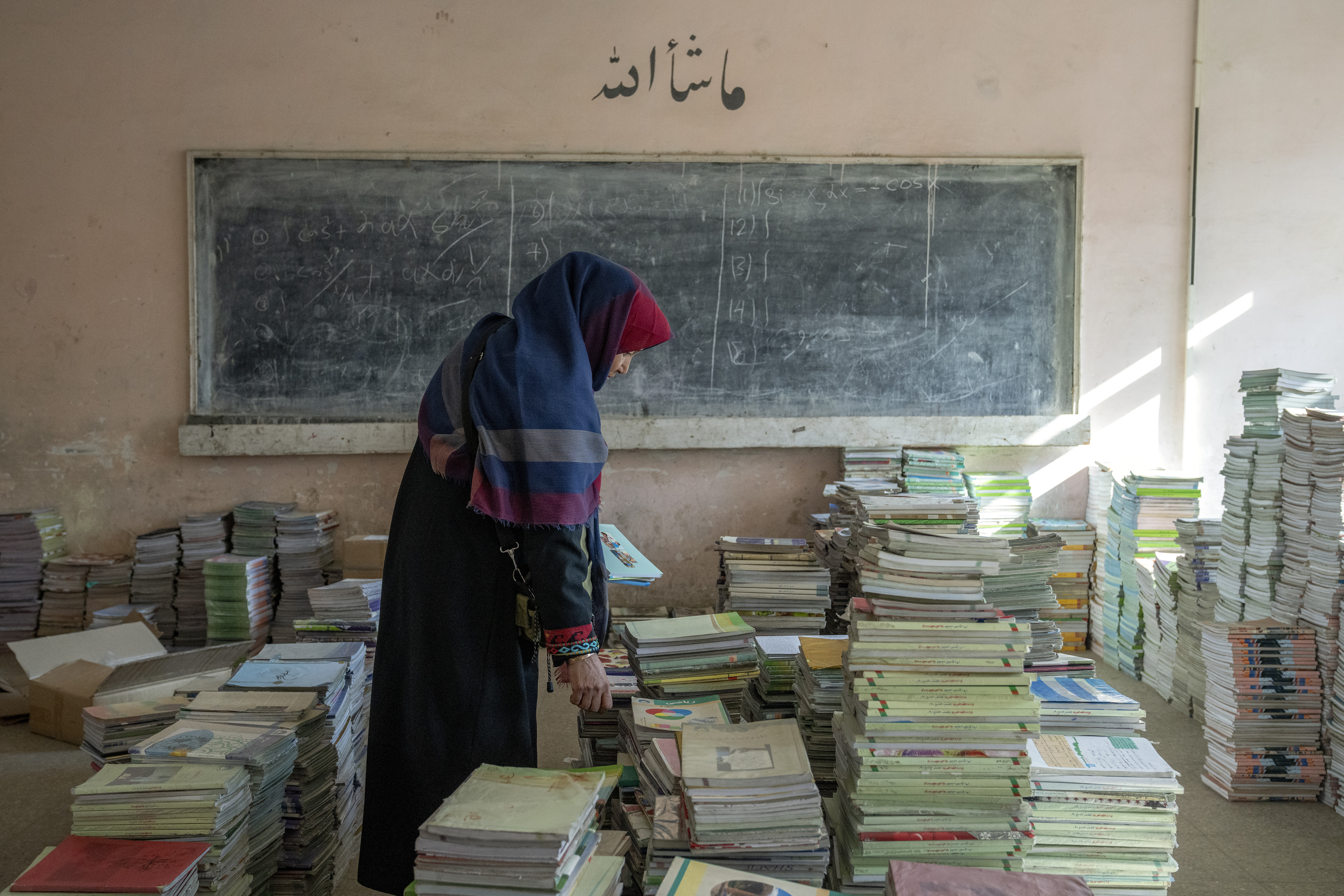
The Taliban’s war on women continues apace
Beth Bailey
Video Embed
Last week, the Taliban escalated their devastating war on the women of Afghanistan. By barring women from attending universities, the Taliban have capped girls’ educational attainment at the sixth-grade level. In response to international outrage, the Taliban’s minister of higher education defended the ban, saying women in universities did not abide by the Taliban’s dress standards and were being taught subjects that contradicted the group’s interpretation of Islam.
The restriction created a new fervor among Afghans across their country to fight back against the increasingly emboldened Taliban. The Taliban responded in kind. In Herat province, the brutal rulers turned high-powered fire hoses on female protesters despite frigid temperatures. Taliban fighters occupied major roads and areas around Herat University in the hours following the protest. In the city of Kandahar, Afghanistan, a video emerged of Talibs shooting weapons as Afghans protested the education ban. In one scene, a Talib severely beat up someone who appeared to be dressed in a woman’s burqa.
NGOS SUSPEND WORK IN AFGHANISTAN AFTER TALIBAN REGIME BARS FEMALE EMPLOYEES
The Taliban’s crushing blow to women’s aspirations was followed in December by a salvo directed at nongovernmental organizations. Henceforth, the Taliban have banned women from working for international NGOs providing humanitarian aid to the beleaguered people of Afghanistan. Any group that fails to follow this order has been told it will lose its operating license.

In a press release, Save the Children, the Norwegian Refugee Council, and CARE International lamented their inability to “effectively reach children, women, and men in desperate need in Afghanistan without … female staff.” Along with the International Rescue Committee, they have made the difficult decision to suspend their Afghanistan operations. In the midst of a harsh winter and economic crisis, these NGOs’ absence will be felt painfully. Despite the difficulties they face, some groups plan to continue providing food and aid to their struggling countrymen.
To date, the Taliban have faced few real consequences as a result of their heinous crimes against women and the Afghan populace. Since their takeover of Afghanistan, Taliban fighters have been implicated in a variety of serious crimes, including engaging in mass killings, forcing Afghan girls and women into marriage, and raping women and boys. Recently in Samangan province, a Taliban fighter was accused of raping and beheading two women as their families looked on. One source told me the women, like a number of other Taliban rape victims, were from the Tajik ethnic group.
More concerning are rumors of the Taliban leaders’ plans to institutionalize the commodification of the women of Afghanistan. According to a source with access to Taliban leadership who spoke with me on condition of anonymity, the Taliban’s minister of public health is planning to issue a decree ordering all women over the age of 12 to undergo a health screening for public safety. In reality, the source says that the Taliban aim to accumulate a list of all unwed women and verify their virginity. Those who are virgins will be forced into marriage, while those who are not virgins will be subjected to the Taliban’s corporal-punishment-based interpretation of Sharia.
Opportunities and the quality of life for Afghan women have slowly winnowed away since the August 2021 U.S. withdrawal from Afghanistan. These new misogynistic restrictions now affect the lives of approximately 18 million Afghans whom the World Food Program of the United Nations assesses are “acutely food-insecure,” which includes 6 million Afghans “teetering on the brink of famine.” In the wake of these concerning developments, it is imperative for the international community to do everything in its power to support the people of Afghanistan in their fight against leaders who are callously indifferent to their suffering.
CLICK HERE TO READ MORE FROM THE WASHINGTON EXAMINER
Beth Bailey (@BWBailey85) is a freelance writer from the Detroit area and the co-founder of The Afghanistan Project, a forthcoming podcast delving into the tragedy wrought in the wake of the U.S. withdrawal from Afghanistan.
